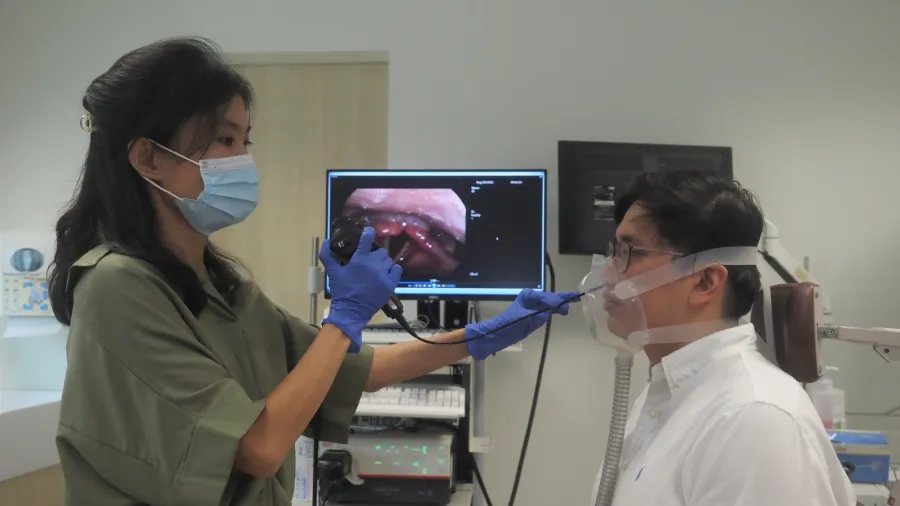
How this ENT specialist invented extra protection against airborne diseases during scope procedures
The healthcare expert seeks to prevent aerosol and droplet contamination during surgical procedures.
When performing scope procedures, Dr. Chew Hui Sing, an ear, nose, throat (ENT) specialist from Tan Tock Seng Hospital (TTSH) in Singapore, found the dangers of aerosols or droplets from un-masked patients who are coughing and sneezing, which could lead to the spread of potentially infectious diseases.
Chew said they need an innovative tool to prevent the risk of infection transmission during procedures such as nasendoscopy.
“During this procedure, sometimes, despite the use of topical anaesthetic spray, patients may cough and sneeze. Coughing, sneezing, talking, or even breathing result in a significant amount of aerosols and droplets that are being released into the environment,” Chew told Healthcare Asia.
The ENT specialist thought of creating a tool to protect patients and healthcare workers during ENT procedures.
After consultation with the National Healthcare Group’s (NHG) Centre for Medical Technologies & Innovations (CMTi) and its industry partner, The Biofactory, Chew invented Aerodrop Duo, an environmentally-friendly dual-function high-efficiency particulate (HEPA) filtration scope mask system. The BioFactory, a biomedical incubator in Singapore, is also the co-inventor of the device.
“We know that COVID-19 is not going to be the first nor the last pandemic in the history of human pandemics that we encounter,” said Chew.
“It is important that we take measures to bring about a safer method of performing such procedures, such that this service does not get disrupted in the next pandemic. It can also allow us to resume efficiently and safely without compromising the safety of healthcare workers or any patients or visitors,” she added.
Aerodrop Duo, as Chew pointed out, is a dual-function protective scope mask and filtration system. The mask is one-size-fits-all, transparent, hypoallergenic, has ports for scope access, and serves as a physical barrier itself. In addition, suction to the mask powered by the medical grade HEPA serves as a second layer of protection against any potential leakages from the mask edges.
The fully titratable HEPA filtration unit then serves as the third layer of protection to filter the ambient clinic air, even if there are no procedures performed. A HEPA filtration can trap tiny particles, according to John Hopkins University, a US-based research university.
“The idea is that of source control where we try to limit the contamination to the source itself before it even gets into the environment. This is a good idea because there are no other existing measures that will allow us to resume service as efficiently,” Chew.
Tested and tried
Before using the device in ENT procedures, Chew said they first conducted experiments to determine whether the Aerodrop Duo can prevent aerosol and droplet contamination.
To prove its efficacy, they conducted a pilot study of 15 healthy participants performing aerosol-generating activities with the Aerodrop Duo and compared it with a surgical mask and without a surgical mask.
“We compared Aerodrop Duo to normal surgical masks, as well as in without-masks-on scenarios when patients perform aerosol-generating activities like breathing, speaking, singing, or even coughing,” said Chew.
The experiment showed that there is a slower particle emission rate for the Aerodrop Duo during breathing, speaking, and singing compared with other interventions (such as in masked or unmasked situations).
“We found a significant and meaningful reduction in the rate of rise of cumulative particle counts from the use of the prototype compared to even normal surgical masks or without any masks,” Chew explained.
In conclusion, Chew’s team found that their innovative product is the first in the market to be connected to a portable HEPA filtration (of a minimum level of H13). The use of this scope mask and filtration system may help reduce disease spread during the current pandemic, or future unknown respiratory disease epidemics through source control and reduction of environmental contaminants.
Fully reusable, eco-friendly
Data from the Ministry of Health in Singapore showed that the amount of biohazardous waste from hospitals and clinics generated and disposed of went up by 5% per annum from 2016 to 2020.
With this data in mind, the developers of Aerodrop Duo also wanted to make sure that the device is sustainable. What they did was make the parts of the medical device sterilisable, which reduces waste and carbon footprints.
“Our entire mask as well as the straps are fully sterilisable. The filtration unit is also relatively quiet, which is important as such devices are used in clinical settings, where the clinicians may be speaking to patients in the background,” Chew explained.
Clinicians will also be more comfortable when performing scope procedures because they do not need to be in full personal protective equipment (PPE) or N95 masks, Chew said. This is because the device limits the contamination to the source itself.
This makes the device sustainable enough to reduce medical waste such as bulky surgical suits.
“You can guarantee safety, whilst reducing the use of PPEs. You reduce the number of disposables and consumables that everyone has to use,” said Gabriel Tan, Programme Director at The BioFactory.
Another feature of Aerodrop Duo is that it is fully portable, and can be deployed in wards or emergency departments, where scope procedures are being done.
The device also addresses the shortage of negative pressure rooms, which are pricey. According to The BioFactory, the Aerodrop Duo costs about $10 to $15 per patient, which is more affordable than availing or constructing a full negative pressure room from scratch.
“This is a fully reusable system. There is very minimal cost in terms of consumable costs, unlike other devices,” Tan said.
What makes the device more effective is that it is biocompatible and it is hypoallergenic.
To prove its efficacy and safety, Chew explained that experts such as infectious diseases specialists from Tan Tock Seng Hospital and the National Centre for Infectious Diseases were consulted and even supported the use of the device.
“Given the strong data for its efficacy, our infectious diseases team has allowed clinicians to be merely on a surgical mask instead of an n95. mask when performing scope procedures with this device even during the earlier phase of the pandemic before the recent national step down in PPE,” she said.
Looking ahead, Chew said they are eyeing to introduce the Aerodrop Duo to other specialists in the ENT profession and other aspects of the hospital, while Tan believes that it can go beyond the local market.
The portable scope mask and filtration system can also be modified for patient transportation in infectious disease cases.
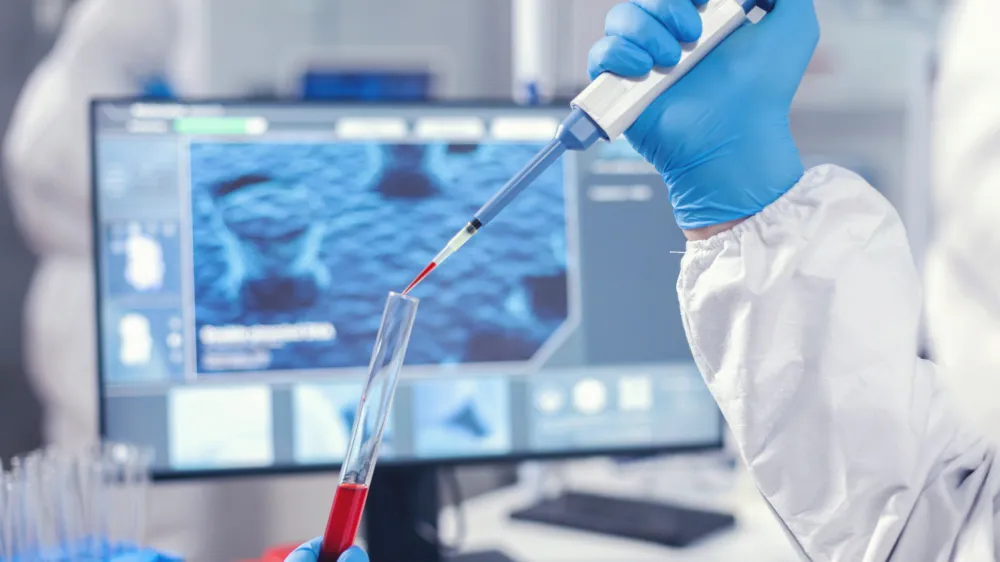
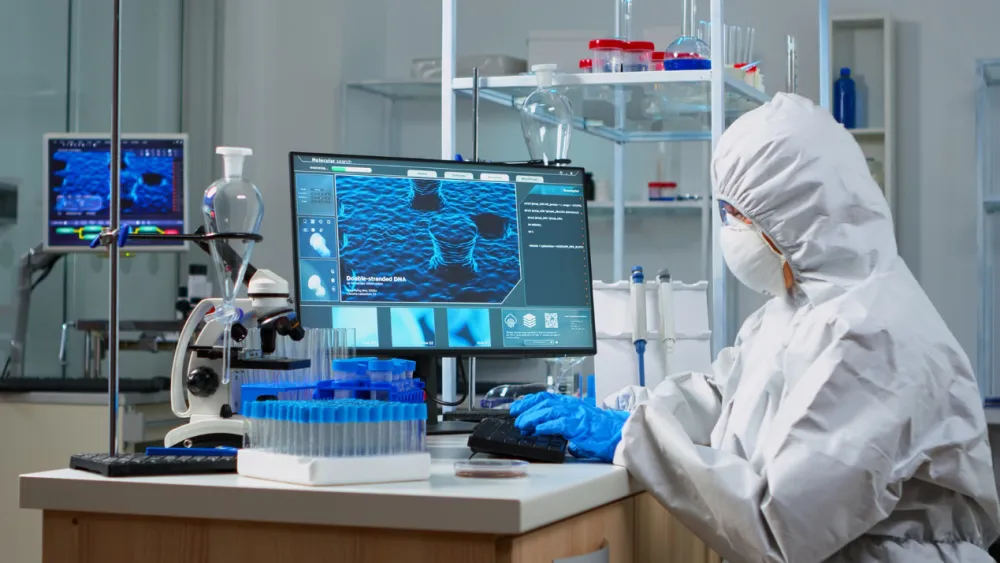
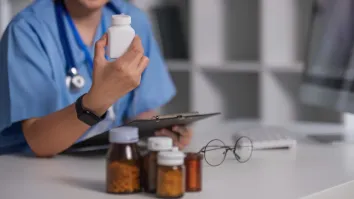
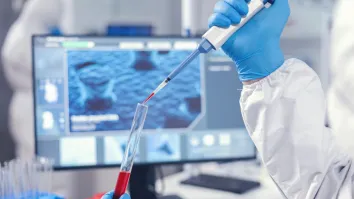
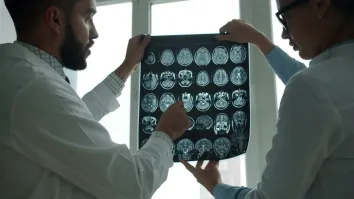
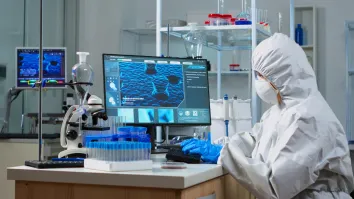













 Advertise
Advertise





